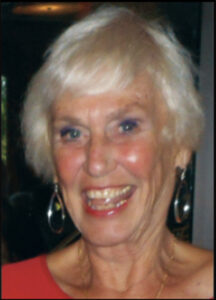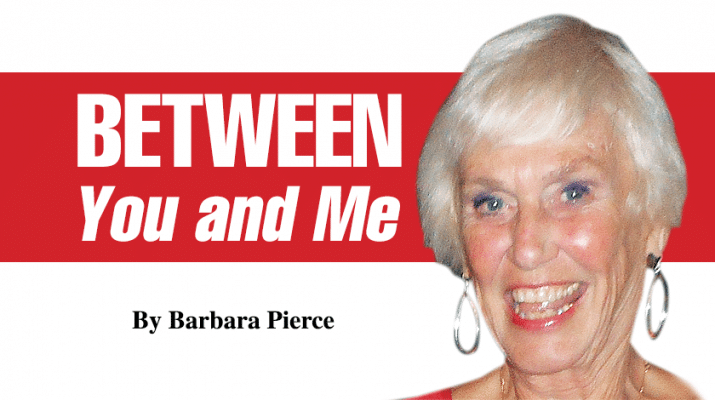By Barbara Pierce
“I do expect to see you at my graduation!” read the text from Crystal, my 21-year-old granddaughter.
So here I am after the ceremony, watching her take selfies with her friend, her stepdad taking pictures with his phone for Facebook, her blonde hair streaked with purple, her long fake nails painted with a tiny story representing the movie “Friday the 13th.” Her friend has a nose ring and tattoos. Thank goodness Crystal hasn’t gone down that path!
How different life is for her than it was when her mother graduated.
It’s a different world.
And it’s really a different planet from when I graduated so long ago.
I watch with increasing puzzlement.
I’m puzzled because I no longer know how to relate to this young woman who lives in a strange, new world. I was there for her birth and I’ve been around since. When she was born, my heart opened up to her.
I had a wonderful grandmother. She loved me unconditionally, was always there for me. She was a ‘fun’ grandma, always ready to jump in to join activities with us kids. My cousins and I were frequently in her home, not just for special occasions but on an everyday basis. Years later, when we had a family reunion, we all agreed that Grandma was the most influential person we had growning up.
After I went to college, I kept in touch with Grandma. I remember thinking she wasn’t in touch with the world I lived in. She didn’t begin to understand the issues I faced — but I loved her still. Loved her for the fact she was my main cheerleader, always sure I would do the right thing, make the right decisions. I never failed in her eyes.
I’ve heard that’s the Golden Rule for grandparents: To provide unconditional love and emotional support to their grandchildren while not interfering with the rules established by the parents.
I wanted to be that kind of grandma for Crystal — showing unconditional love and emotional support. When she was a toddler, we played silly games together and she’d laugh and laugh. I loved her innocence, her enthusiasm for the new things I showed her. When she was in grade school, I listened to her sadness when friendships ended and happiness with new friendships. We laughed together often. When she was a teen, I cheered her on when she stood up to her abusive father and refused to see him.
I’ve loved being her grandma. I’m so happy I got to be an important part of her life. She has brought me much joy.
It was easy to connect with her when she was young.
Now I just don’t understand the world she lives in. I don’t know how to be “Grandma” to this young woman. It’s interfering with my relationship with her.
One can get all kinds of advice on the internet. So I went on a search. This is what I learned:
Yes, it is easier to connect with our grandkids when they are young. As they grow up, the challenge is to remain relevant and engaged. (How to remain relevant: Stay open to new things, embrace changes in technology, pursue lifelong learning.)
Listen when she needs to talk. Actively listen, don’t think about the great book I’m reading, what my column should be, etc. Actively engage in the conversation she wants to have.
Guide her by raising questions that encourage her to think about the issues facing her. Don’t give advice.
Absolutely don’t give advice.
Being a grandparent is the opportunity to influence a young person in a completely different way than her parents influence her.
Be intentional about how I am going to maintain this relationship. She needs my wisdom, she needs somebody outside of her parents to let her know she is OK, she is of value.
By my relationship with Crystal over her life, I hope I have helped to create in her secure emotional scaffolding that she can carry for life. I know that is what I’ve wanted for her. What she needed most is stability and the sense that she is cherished exactly as she is.
Research supports it: consistent grandparent involvement contributes to a child’s emotional resilience and has long-term benefits for both children and grandparents.
She has evolved; I need to evolve alongside her rather than lamenting over the changes. And love her fully for who she is and meet her where she is at.
 Barbara Pierce is a retired licensed clinical social worker with many years of experience helping people. If you would like to purchase a copy of her book, “When You Come to the Edge: Aging” or if you have questions for her, contact her at barbarapierce06@yahoo.com.
Barbara Pierce is a retired licensed clinical social worker with many years of experience helping people. If you would like to purchase a copy of her book, “When You Come to the Edge: Aging” or if you have questions for her, contact her at barbarapierce06@yahoo.com.

